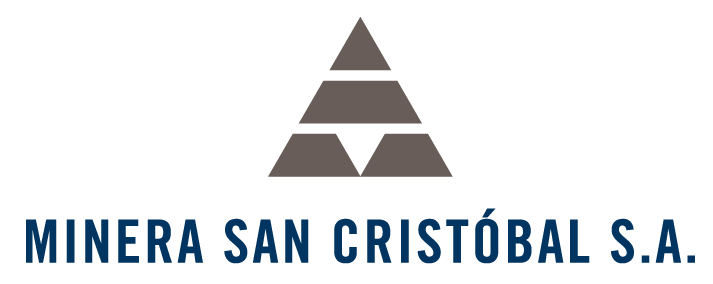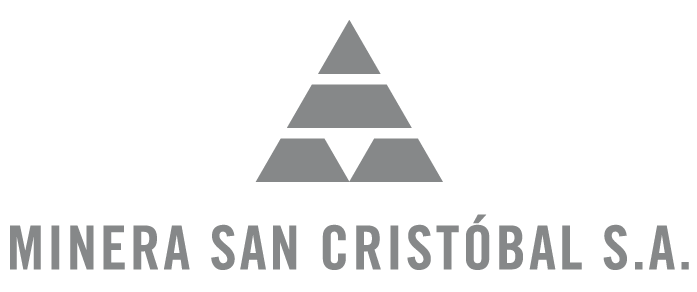Inforse.com.bo
Tuesday 07.12.2016
Minera San Cristóbal (MSC) S.A., a mining company operating in the province of Nor Lípez, Department of Potosí, has recently been awarded the Paul Harris Award for Enterprise Excellence by Rotary Club Chuquiago Marca. The sixteenth version of this award ceremony recognized the work of companies and entrepreneurs committed to Corporate Social Responsibility (CSR).
At the awarding ceremony, InfoRSE spoke with Javier Diez de Medina, MSC’s Corporate Affairs Manager. When asked two times about the successful CSR projects, with the ease characterizing him he preferred not to brag and rather opted to highlight the work carried out by all parties who are part of the family of the mining company, i.e. not only the workers but also the families living in the communities where the operation is located.
Diez de Medina began the interview by thanking Rotary Club Chuquiago Marca for the award. “It is a great honor to receive this award from Rotary Club, an important and prestigious institution in Bolivia. We are very grateful because this award is a recognition of the efforts of our entire labor force that makes a contribution, day after day, to this Company attaining its production targets and contributing to development of the communities, the region, and the country where we are”.
InfoRSE.- What are some important examples of successful CSR projects?
Javier Diez de Medina.- Rather than great examples, we should say that the key of our actions are the very good relations we have with the communities and the projects that we were able to carry out under the guidance of the community inhabitants who now have what they call the Consultative Council. In other words, they plan, they decide their future and we accompany them. We are just one more member of their team. It should be noted that they are engaging in very interesting projects such as the quinoa project: they have managed to set up a saponin-extraction plant and a processing plant for the quinoa – of the Quinoa Real variety – produced in the region. The communities themselves have carried out this project. The idea was born from them and projected by them. An effort that fills us with pride because we are part of them.
InfoRSE.- We are talking about inclusive projects. Does this mean that the people linked to Minera San Cristóbal do not only depend on the mining activity? Are they prepared for the hard times?
Javier Diez de Medina.- Well, I think that we have all worked very hard with this metal price crisis. 99% of our labor force is Bolivian, 64% of our workers are from Potosí and 50% from the communities with which Minera San Cristóbal has a relationship. That is to say, the people from the communities and the workers have made a major effort to face this crisis.
In the communities, the families have their own businesses, they are the ones providing us with a variety of services and, of course, we have had to become more efficient during difficult times. This has been a joint effort which is bearing its fruits because it has allowed us, and them, to survive during this crisis. Therefore, working as a team – which is one of our values – and engaging the workers and the community is something that fills us with pride. This is not only a reason for pride of the company and me as a Bolivian citizen, but it is also a source of pride for the workers who see that things are going forward, despite the hard times we are going through.
InfoRSE. – By way of example of the topics on which San Cristóbal is working, it is sufficient to visit the town and be surprised at how they have created a different culture, with the population being committed to the environment, education, health, the quality of life. And there is no trash scattered around… Is this really so?
Javier Diez de Medina.- The example of the quinoa that I mentioned before is not the only one. The communities have projects for health, education and the environment. They want to be good citizens, and they keep in mind policies for a better management, e.g. for a better management of the waste generated by the community. That is to say, beyond what the company does regarding environmental issues, they have their own project for residue management. And since the communities receive many Bolivian and foreign visitors, they want to look nice. With regard to health, they are working on the project to build the second-level hospital of San Cristóbal. This is an effort of the community in partnership with the municipality and the Central Government which shows how committed they are to their own wellbeing. On the other hand, there is a health project that involves many other communities from the region so that the San Cristóbal project would become a model at the national level. And they are conducting a series of trainings with the teachers and students to increase the level of schooling in the area.
InfoRSE.- Are there any policies for internal audiences and around environmental care in the mining operation?
Javier Diez de Medina.- We are very strict in terms of environmental measures. We have made significant investments to build the Dome, the only one of its kind in the country, to reduce the levels of contamination. With regard to our personnel, our human resources are the company’s most important asset. Therefore, we are demanding in terms of compliance with regulations and procedures related to industrial safety and protection of our personnel. We are a company that offers many opportunities. We have women driving Tonkas (giant trucks); the drivers of those trucks are no taller than half the height of a tire. We develop many actions …. But as I said at the beginning, our most important asset is our labor force.
InfoRSE.- Is the Paul Harris award well deserved?
Javier Diez de Medina.- It is the result of the efforts of the people from the community and of the workers, they deserve this.
Data on Minera San Cristóbal. Minera San Cristóbal S.A. (MSC) is a world-class Bolivian mining company and one of the largest companies in terms of employment and innovation in the national territory. It is a subsidiary of Sumitomo Corporation, one of the leading business consortia of Japan.
It operates in the province of Nor Lípez in the Department of Potosí. It operates the San Cristóbal mine, extracting silver, lead and zinc concentrates at a rhythm of around 40 thousand tons of ore per day; approximately 150 thousand tons of rock are removed each day to satisfy the production demand.
The company has obtained the following certifications: ISO 9001 which is related to standards for quality management systems, ISO 14001 on environmental management and OHSAS 18001 on safety and health, among others. These are just some of the data because of which the company is the most important mining company operating in Bolivia, which has special programs to monitor its operations and mitigate its environmental impact.
Its commitment to environmental responsibility is also translated in the implementation of projects to ensure sustainability of the water, land and local resources. This is part of its commitment to the community to which it is linked and of its spirit of mutual respect that has prevailed since the beginning of the operation. In terms of Social Responsibility, according to the company its commitment is governed by several international guidelines, including World Bank Operational Directive 4.20 on Cooperation for the Development of Indigenous Peoples. One of its goals is to help create conditions for the population of the adjacent local communities to develop self-sufficient businesses that are not related to the mining operation and help create a better future for the local inhabitants.

